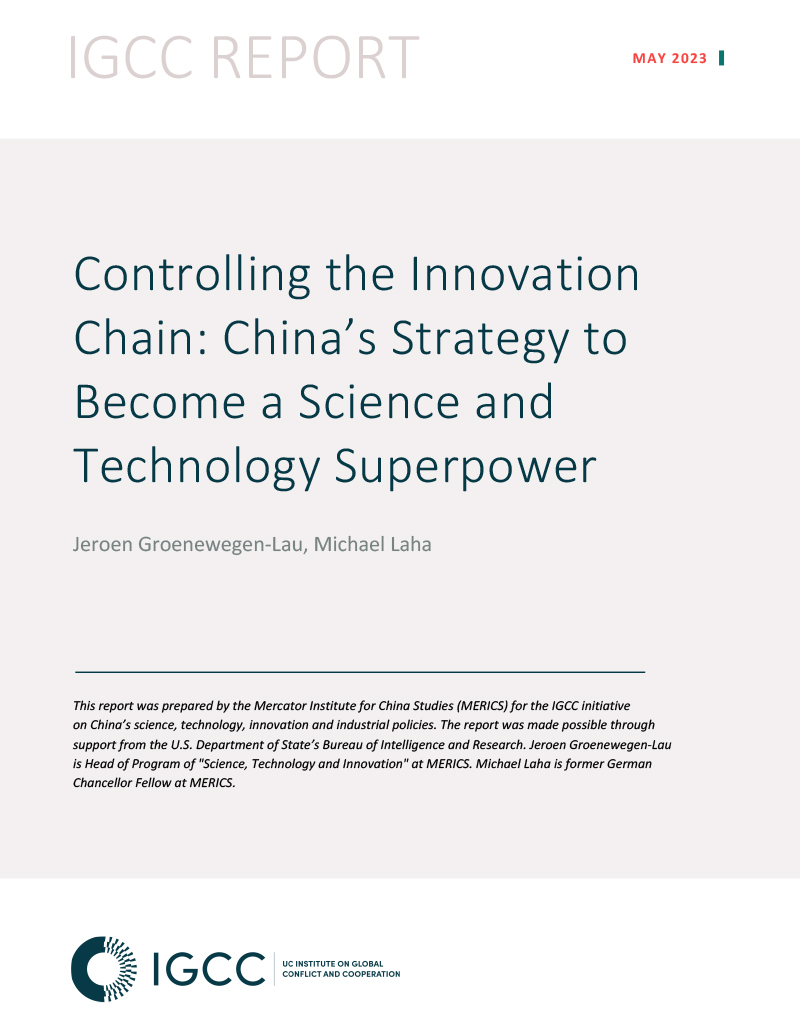The Innovation Chain: China’s Strategy to Become a Science and Technology Superpower

In this report, Jeroen Groenewegen-Lau, head of the “Science, Technology and Innovation” project at MERICS, and Michael Laha, former German Chancellor Fellow at MERICS, summarize their findings on China’s changes to their innovation strategy, and how the shift to technological self-sufficiency may affect European companies and partners.
DownloadChina’s rise as an advanced technological, innovation, and industrial powerhouse is one of the most profound developments in the reshaping of the 21st century global economic and technological order, with far-reaching implications for the economic competitiveness and national security of the United States and the rest of the world. But little has been known about the specific ways in which these high-level strategic initiatives translate into practical state support for individual Chinese firms or labs in specific sectors. This report, prepared by the Mercator Institute for China Studies (MERICS) for the IGCC initiative on China’s science, technology, innovation, and industrial policies, analyzes China’s alignment of its vast innovation resources with its strategic goals. Trends in the governance of public research funding, research institutes, and development zones illustrate that China’s policymakers are seeking to systematically address and integrate every step of the innovation process into an innovation chain.